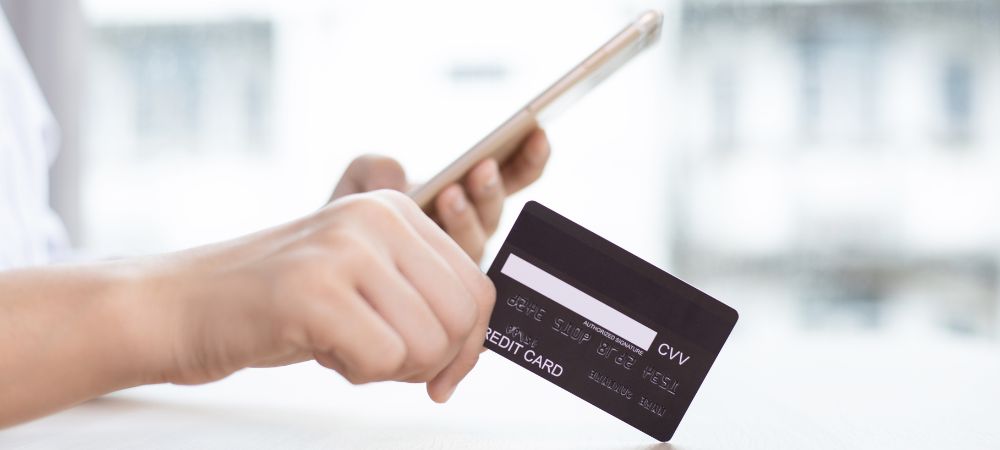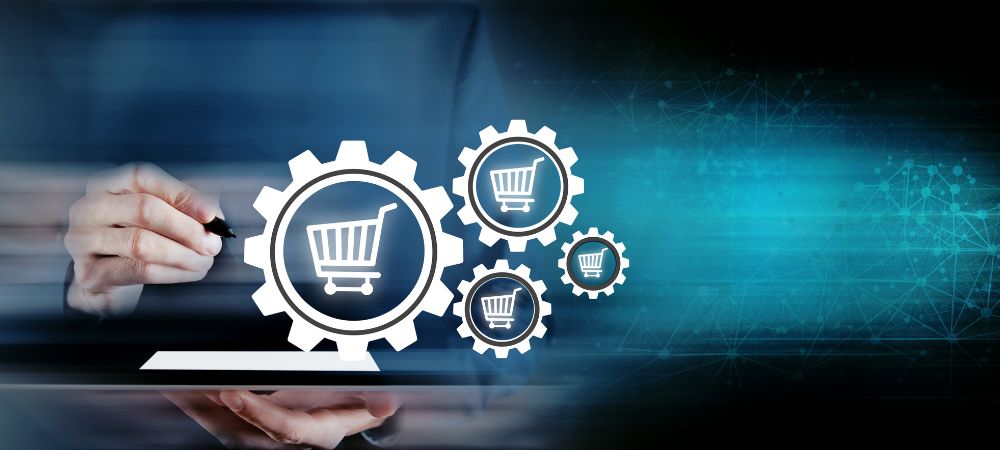

When it comes to online shopping, there's a bunch of payment methods to choose from. Credit cards and digital wallets are popular choices, but let's not overlook the benefits of using bank transfers. Get access to further information check it. It might not be everyone's first pick, but it's got its perks!
First off, security is a big deal. With all the cyber threats out there, who doesn't worry about their financial info getting stolen? Bank transfers offer a level of security that's hard to beat. Since you're directly transferring money from your bank account to the retailer's, there's no middleman who could potentially compromise your data. It's like taking the scenic route; it may take a bit longer (sometimes), but it's safer.
Now, let's talk about fees-or rather, the lack thereof! Many people don't realize that some payment methods come with hidden costs. Credit card companies might charge you interest or even annual fees if you're not careful. But with bank transfers? Usually free or super low-cost. Who wouldn't want to save a few bucks?
Another thing folks love about bank transfers is transparency. When you use this method, you can easily track where your money's going and when it got there. No more scratching your head wondering if that payment went through or waiting days for transaction updates! You see everything in real-time in your bank statement.
Oh boy, here's something else: convenience for budgeting! If you're someone who's always trying to keep tabs on spending-and let's face it, who isn't these days-using direct transfers makes it easier to manage funds effectively. You're less likely to overspend because you're only using what you have in your account.
But wait-there's more! Some retailers offer discounts for customers who pay via bank transfer since they avoid those pesky credit card processing fees themselves. So not only do you save on potential interest rates or hidden charges; sometimes you get an outright discount just for choosing this option! Double win!
Get access to further information see currently. However, let's not pretend there aren't any downsides at all-it wouldn't be fair otherwise! Sometimes transactions can take longer compared to other instant payment methods like credit cards or PayPal. And yeah sure, entering all those banking details every time can feel tedious compared with one-click payments.
In conclusion though-with added security measures against frauds and lower transaction costs-not opting for bank transfers might mean missing out on significant benefits especially beneficial during times when every penny counts more than ever before!
Making a bank transfer for an online purchase might seem like a daunting task, but it ain't that complicated once you get the hang of it. There are several steps involved, and while they might sound overwhelming at first, they're actually pretty straightforward. So, let's dive in!
First off, you'll need to log into your online banking account. If you don't have one set up yet – uh-oh! – that's something you'll need to do before anything else. Most banks nowadays offer some form of internet banking service, so you'd better check with your bank if you're unsure.
Once you've managed to log in (hopefully without forgetting your password), look for an option that says something like "Transfer Funds" or "Make a Payment". This is where things start getting interesting! You'll be prompted to enter the recipient's details. Now, make sure you don't mess this part up – entering the wrong information could mean your money ends up in someone else's account!
To find out more check listed here. You'll typically need the recipient's name, their bank's name, and most importantly their IBAN or account number. Depending on whether it's a domestic or international transfer, other details like SWIFT codes could also be required. It's crucial not to skip any of these fields because incomplete information can halt the whole process.
Next comes determining how much you want to send. Double-check this amount; you wouldn't want to send $500 when you meant to send $50! Some banks also allow you to add a reference note which could be helpful for both parties involved in understanding what the payment is for.
Before hitting that final submit button – wait just a sec! – review all entered information carefully. Mistakes here can be costly and time-consuming to rectify later on. Once you're confident everything looks good, go ahead and confirm the transfer.
Oh boy, there's usually one last step: authentication. Banks often ask for additional verification through text messages or emails with confirmation codes just to ensure it's really you making this transaction. Don't panic if you see this; it's simply an added layer of security.
And voila! You've successfully initiated a bank transfer for your online purchase... hopefully without too many hiccups along the way.
In conclusion (phew!), while making a bank transfer may initially seem confusing with all its steps and requirements, taking it slow and careful ensures that things go smoothly. And hey – practice makes perfect! The more transfers you do, the easier it'll get over time.
When it comes to mastering online shopping and saving big every time, evaluating return policies and customer service is something you can't ignore.. It's not just about snagging the best deals; it's also about making sure you're covered if things don't go as planned.

Posted by on 2024-07-07
Finding hidden discounts online can feel like a treasure hunt, but it's one that's definitely worth the effort.. One of the most overlooked ways to uncover these secret deals is to negotiate with online chat support.

Posted by on 2024-07-07
In today’s digital age, shopping online has become the norm for many of us.. It’s convenient, fast, and often cheaper than traditional retail shopping.

Posted by on 2024-07-07
Shopping online has become a common part of our daily lives.. But, with the convenience comes risks too.

Posted by on 2024-07-07
Oh, boy!. The future of the retail industry is undoubtedly a hot topic these days.

Posted by on 2024-07-07
Security measures and fraud prevention in bank transfers are really crucial, aren't they? When it comes to moving money around, banks ain't messing around. They're always on their toes to make sure your hard-earned cash doesn't end up in the wrong hands.
Firstly, let's talk about security measures. Banks use a bunch of cool tech stuff like encryption and two-factor authentication (2FA) to keep things secure. Encryption scrambles your data so that if someone tries to intercept it, they'll just see gibberish. 2FA adds an extra layer by making you confirm your identity through something you know (like a password) and something you have (like a phone). Honestly, without these safeguards, transferring money would be a risky business.
But even with all these high-tech barriers, banks ain't immune to fraud attempts. That's where fraud prevention steps in. Banks constantly monitor transactions for any suspicious activity. If there's an unusual transfer amount or if you're suddenly sending money overseas when you never did before-bam! The system flags it.
One common trick is phishing attacks, where scammers try to get your personal info by pretending to be from the bank. Always double-check emails or messages asking for sensitive information because legit institutions won't do that outta nowhere.
Another measure is educating customers about safe banking practices. After all, what's the point of having strong security if nobody knows how to use it properly? So yeah, don't share your passwords and always log out from public computers; basic but super important advice.
Banks also employ machine learning algorithms that can detect patterns and anomalies faster than humans ever could. These systems learn what normal behavior looks like and can quickly spot when something's off-color.
However, no matter how advanced these systems get, they aren't foolproof. Sometimes hackers find ways around them, which is why it's essential not only for banks but also customers to stay vigilant.
In conclusion, while security measures and fraud prevention tactics have come a long way in safeguarding bank transfers, they're not perfect-no system is entirely bulletproof. But with continuous improvements and increased awareness among users like us-hey! We can collectively make it pretty darn tough for those pesky fraudsters to succeed.

When it comes to paying for things these days, there's no shortage of options. Everyone's got their own favorite way to handle transactions, whether it's whipping out a credit card or clicking that PayPal button. But let's not forget about the good ol' bank transfer. Yeah, it might not be as flashy, but it's still kicking around and holds its own in certain situations.
First off, let's talk fees. Credit cards often come with those pesky transaction fees that can add up over time. Not to mention, if you don't pay your balance in full each month, interest can really sting your wallet. PayPal ain't much better; they charge sellers a percentage of each sale and sometimes even buyers get hit with fees when converting currencies or sending money internationally. Bank transfers? Usually free within the same country! Of course, international transfers can cost ya a bit more but hey, nothing's perfect.
Then there's security - oh boy! Credit cards offer some solid protections against fraud and unauthorized charges. You lose your card? No biggie; just call the bank and they'll sort it out pretty quickly. PayPal has buyer protection too, but getting through their customer service maze can feel like pulling teeth sometimes. With bank transfers though, once you send that money... it's gone! No take-backsies here which makes people a tad hesitant to use them for online shopping or dealing with strangers.
Convenience-wise? Well, credit cards are super easy; swipe or tap and you're done! They're accepted almost everywhere so you don't have to worry much about carrying cash around. PayPal is also pretty slick especially for online purchases – just log in and click away! Bank transfers? Eh…not so much fun there – you've gotta enter all those account numbers and routing info which feels like such a chore compared to just tapping a screen.
But let's give credit where it's due: bank transfers shine bright when making big payments like buying a car or putting down deposits on houses because they handle large amounts smoothly without racking up significant fees (mostly). Plus banks are really stringent with verifications ensuring funds go exactly where they're supposed too.
One thing folks often forget is privacy – using credit cards means sharing lotsa personal info while every Paypal transaction leaves digital breadcrumbs behind leading straight back home (kinda spooky huh?). Transfers from one bank account directly into another bypasses third parties keeping details mostly under wraps unless authorities need snooping around!
So yeah - despite having its quirks n' drawbacks compared against modern methods like plastic swipes n' digital clicks- plain ol' fashioned wire transfers still hold value particularly when dealing heavy sums swiftly safe & soundly albeit being less convenient day-to-day purchases small fries alike!
In summary - comparing apples oranges maybe unfair since each method brings pros cons table depending needs preferences user ultimately deciding factor lies balancing act between costs security simplicity convenience choosing right tool job whatever occasion calls forth!
Bank transfers are a crucial part of our financial lives, but they're not without their hiccups. Common issues can arise, and knowing how to resolve them can save us all a lot of headaches.
One problem folks often encounter is delayed transfers. You'd think in this digital age everything would be instant, right? Well, not always! Sometimes transfers can take longer than expected due to various reasons like public holidays or network issues. If you find yourself waiting longer than usual, the first step is don't panic. Check the status with your bank's customer service-they usually have more info on what's going on behind the scenes.
Another common issue is incorrect account details. A simple typo in the account number or routing number could mean your money ends up who-knows-where! Double-checking these details before hitting "send" might seem like overkill, but it's really important. If you do make a mistake-hey, we're all human-contact your bank immediately so they can try to recover the funds.
Currency conversion problems also pop up quite frequently when dealing with international transfers. Exchange rates fluctuate and sometimes banks charge hidden fees that weren't clear at first glance. It's frustrating! Make sure you've understood all fees involved before initiating a transfer and keep an eye on those exchange rates; they can change quickly!
Insufficient funds is another common snag people hit. You thought you had enough money in your account but forgot about that automatic bill payment coming out tomorrow? Oops! Always ensuring there's enough cushion in your account for unexpected delays or additional fees will help avoid this embarrassing situation.
Lastly, fraud and security concerns can't be ignored when discussing bank transfers. Scammers are getting cleverer every day (ugh!). To protect yourself, never share sensitive information like PINs or passwords and always verify the recipient's identity before making large transfers.
So there you have it-common issues with bank transfers aren't insurmountable if you're prepared for them. By staying vigilant and taking some proactive steps, most problems can be resolved relatively painlessly. Transfers may not always go as smoothly as we'd like, but knowing what to look out for makes navigating these waters much easier.
Oh boy, international bank transfers for online purchases can be quite the adventure! I mean, who hasn't felt a little bit of anxiety when trying to buy that perfect gift from an overseas store? Let's face it, dealing with international bank transfers ain't always as smooth as we'd like.
First off, there's the whole process. You think it's just gonna be a click and done deal, but nope! It's never that simple. Gotta fill out all those details - IBAN number here, SWIFT code there. If you mess up even one tiny thing? Well, your money's not getting where it should be.
And don't get me started on fees! Oh man, sometimes it feels like everyone wants a piece of your pie. The sending bank takes a cut, then maybe the receiving bank too. By the time you're done, you might wonder if it was even worth it in the first place!
But hey, let's not forget about exchange rates either. Just when you thought you'd budgeted perfectly for your purchase – wham – suddenly you're paying more 'cause the rate changed overnight. It's really frustrating to see how much extra you end up spending just cause of some numbers moving around.
Then there's security concerns too! People are always worried about fraud these days (and rightly so). Sending money internationally means trusting that everything will go smoothly and securely – and let's face it, we've all heard horror stories about things going wrong.
However – phew – despite all these headaches, there's still something sorta magical about being able to buy stuff from anywhere in the world right from your couch. Yeah sure it's complicated sometimes but isn't that part of what makes our modern world so amazing?
So yeah folks... International Bank Transfers for online purchases aren't exactly a walk in park but they do open up so many possibilities! Just gotta keep fingers crossed everything goes well and hope those pesky fees don't eat too much into our budgets!